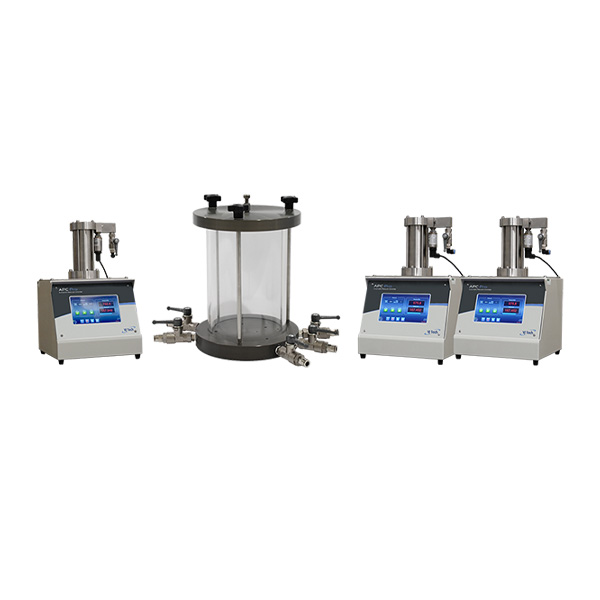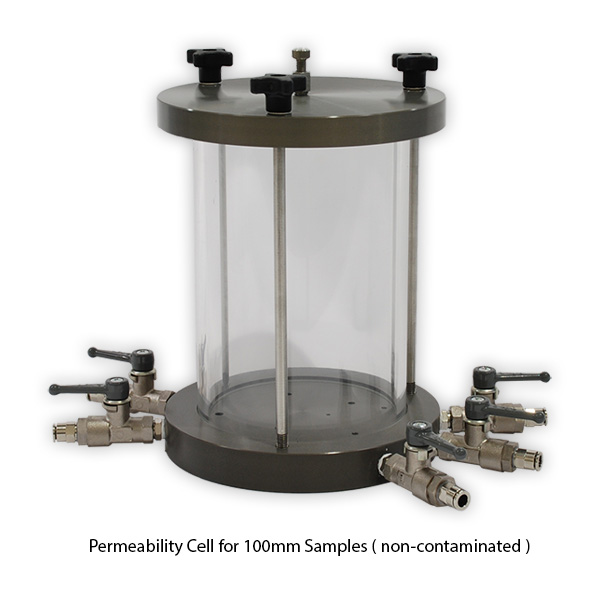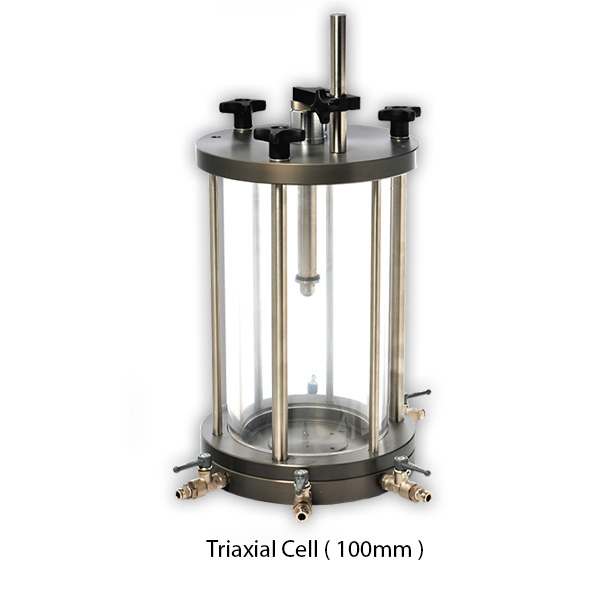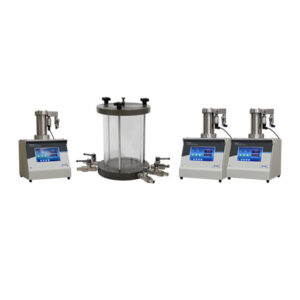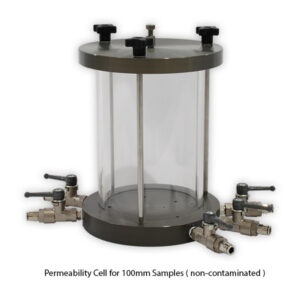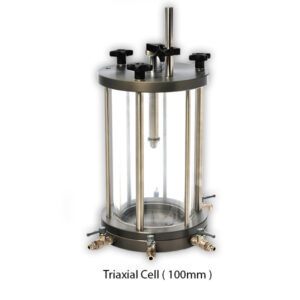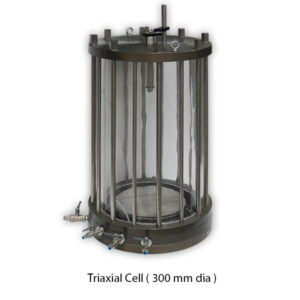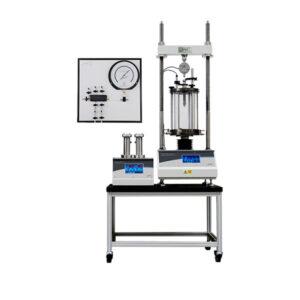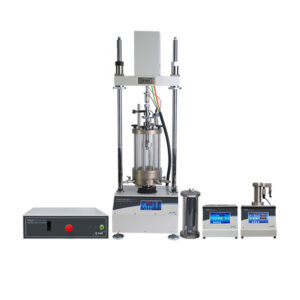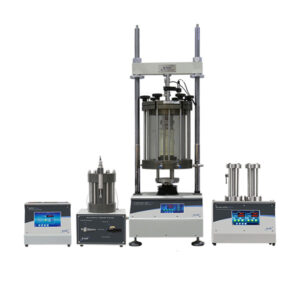- Compact design (small footprint)
- Utilises 3 x APCH to control Cell, Back and Drain pressures
- Measurement of the Pore Water Pressure at the base of the specimen
- Ability to perform saturation and isotropic consolidation
- Hydraulic gradient is controlled by utilising the Back and Drain pressure APCs
- Ability to determine the coefficient of permeability at different effective stresses, void ratios and hydraulic gradients
- Automation option with the use of solenoid valves
- Accurate determination of the inflow and outflow and automatic detection of steady-state conditions
- Clisp studio module (csPermeability) for convenience and automated testing options
- Built-in logger (in APCH) allowing high speed sensor data conversion (24 bit, up to 5000 samples/s) – No need for additional data logger
- Standalone Use via Touchscreen display with data export to PC
- Built-in live data table and graphs
- Multiple Units can be controlled from single PC via a LAN or Ethernet/USB hub
Permeability Triaxial System
VJ Tech’s Triaxial Permeability System can be used for the determination of the coefficient of permeability (also referred to as hydraulic conductivity) of fully saturated soils. Soil specimens are enclosed into a rubber membrane; thus, this is also called a flexible-wall permeability system. Normally, soils with a coefficient of permeability less than 10E-5 m/s can be tested using this method.
The system consists of a modified triaxial cell (Permeability Cell), which accommodates the soil specimens, and three hydraulic pressure controllers (APCH) for the application of the confining (Cell), Back, and Drain pressures. The hydraulic gradient is controlled by utilising the Back and Drain APCs. Procedures normally followed during effective stress triaxial tests are employed to fully saturate and isotropically consolidate the specimen prior to the permeability testing. Different combinations of effective stress and hydraulic gradients may be applied to a single specimen to determine the coefficient of permeability.
Using the csPermeability module and automatic solenoid valves, the testing procedure can be automated with the minimum human intervention. Raw data are collected by the software and all the relevant calculations and graphs are obtained. Results can be printed into standard reports while custom-made reports are also available upon request.
Effective stress triaxial systems can be upgraded into permeability systems with an additional hydraulic pressure controller. Moreover, contaminated samples can be tested using Stainless Steel Air-Water bladders.
Related products
-
Triaxial Testing
VJ0475
Triaxial Cells
-
Triaxial Testing
VJ5000-P
Static Triaxial System (Advanced)
-
Triaxial Testing
VJ5000-P-EM
Dynamic Triaxial System
-
Triaxial Testing
VJ-UNSAT
Unsaturated Triaxial System
